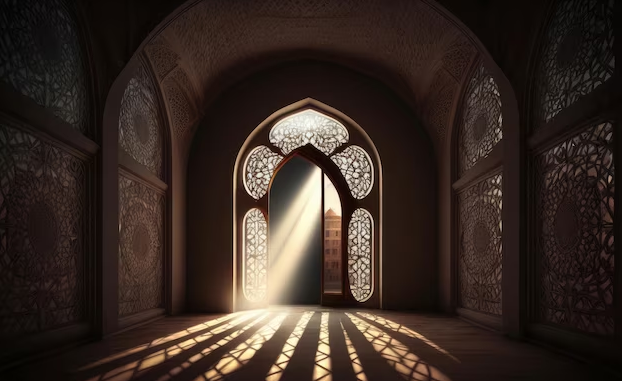In the grand tapestry of existence, where do we unearth the guiding light amidst the labyrinthine passages of life’s journey? Is it concealed within the caverns of joy, soaring high on the wings of knowledge, or entwined within the laurels of scholarly pursuits? Perhaps, the answer eludes the grasp of conventional understanding, shrouded in the mystique of ancient teachings and profound insights.
Within the depths of human consciousness lie whispers of wisdom, echoing through the corridors of time like sacred hymns in a cosmic symphony. Across cultures and epochs, sages, mystics, and poets have sought to unravel the enigma of existence, weaving threads of enlightenment into the fabric of human experience.
In the sanctum of silence, amidst the clamor of the world, the wise one finds solace in the eternal depths of their being. Through meditation and introspection, they unravel the mysteries of existence, plumbing the depths of their consciousness in search of truth. In the stillness of the mind, they glimpse the eternal essence that transcends the transient flux of phenomena.
In the crucible of experience, the wise one transforms adversity into opportunity, transmuting the leaden weights of suffering into the golden elixir of wisdom. They embrace life in all its myriad hues, recognizing that each moment, however fleeting, is pregnant with the potential for growth and enlightenment.
Rumi, the Sufi mystic and poet, invites us to transcend the confines of duality and embrace the boundless expanse of our shared humanity. In the sanctuary of the heart, distinctions dissolve, and the soul finds solace beyond the realm of judgment and division.
Epictetus, the Stoic philosopher, reminds us of the transformative power of perspective. It is not the external circumstances that disturb our inner peace but rather the lens through which we perceive them. Like alchemists of the soul, we have the capacity to transmute adversity into opportunity, forging wisdom from the crucible of experience.
Lao Tzu, the venerable sage of Taoism, beckons us to embark upon the path of self-discovery. True wisdom lies not in the mastery of others but in the profound understanding of oneself. By delving into the depths of our own being, we unlock the mysteries of existence and discover the interconnectedness of all things.
Hermann Hesse, the German novelist and poet, speaks to the limitations of language in expressing the ineffable truths of the cosmos. Beyond the confines of words lies the realm of direct experience, where the heart communicates in the language of silence, and the soul dances to the rhythm of the universe.
In the crucible of life’s uncertainties, the lotus of wisdom blossoms, unfurling its resplendent petals amidst the murky waters of existence. Rooted in inner peace, the wise one remains unperturbed by the fluctuations of fortune, anchored in the sanctuary of their being.
To embark upon the quest for wisdom is to journey into the depths of one’s own soul, navigating the labyrinth of consciousness with courage and humility. It is a pilgrimage to the sacred sanctuary within, where the eternal truths of existence await discovery.
In the poetry of Khalil Gibran, we find echoes of profound insight into the human condition:
“And forget not that the earth delights to feel your bare feet and the winds long to play with your hair.”
Gibran reminds us of our intimate connection with the natural world, inviting us to embrace the beauty and wonder that surrounds us. In communion with nature, the wise one finds solace and inspiration, attuned to the rhythms of the earth and sky.
The teachings of Confucius offer timeless wisdom on the importance of ethical conduct and virtuous living:
“Real knowledge is to know the extent of one’s ignorance.”
In acknowledging our own limitations, we open ourselves to the possibility of growth and enlightenment. The wise one approaches life with humility and curiosity, recognizing that true wisdom lies not in the accumulation of knowledge but in the awareness of our own ignorance.
In the poetry of Emily Dickinson, we encounter reflections on the mysteries of existence and the fleeting nature of time:
“Forever is composed of nows.”
Dickinson’s words remind us of the preciousness of each moment, urging us to embrace the present with gratitude and mindfulness. In the eternal now, the wise one finds liberation from the chains of past regrets and future anxieties, savoring the beauty and richness of life in all its fleeting glory.
As we journey through the labyrinth of existence, let us draw inspiration from the wisdom of poets, philosophers, and mystics who have illuminated the path before us. Let us cultivate the resilience of the lotus, rising above the challenges and uncertainties of life to embrace the boundless expanse of our own potential. For in the pursuit of wisdom, we discover not only the true essence of liberation but also the infinite depths of our own being.
(The writer can be reached at: [email protected])








